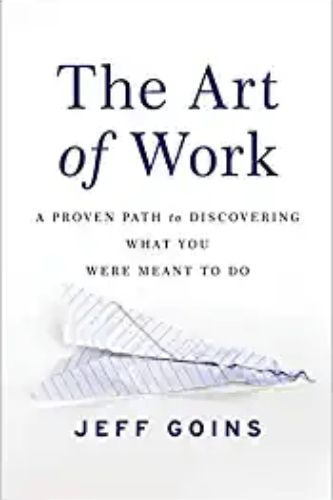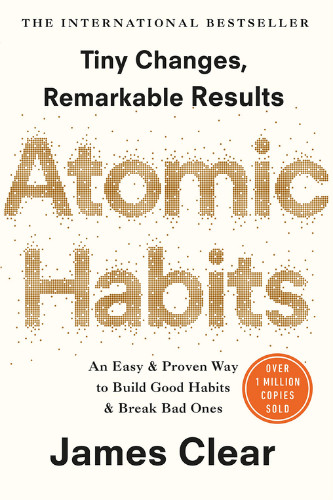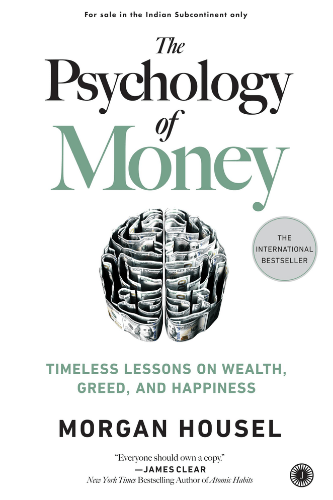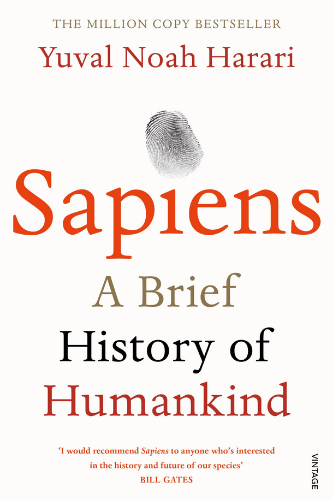Jeff presents a range of anecdotes, both happy and tragic, to illustrate his ideas. The Art of Work is a 200-page book that is simple to read. Jeff urges you to live a life like his, where he works hard but also enjoys the little pleasures of life, such as playing with his child or spending time with his wife at home. Jeff wishes for you to have a life similar to this. He believes that by reading this book, you will be able to live a life similar to the one he has outlined.
| Book | The Art of Work |
| Author | Jeff Goins |
| Publisher | Thomas Nelson |
| Language | English |
| Pages | 240 |
Summary of The Art of Work
You will succeed or fail in this economy if you are bold enough to listen to what life has to say, pay attention to the counsel that becomes accessible to us, or ignore the clear signs. As a form of creative expression, work: The author of A Proven Path to Discovering What You Were Meant to Do uses various real-world examples throughout the book to explain how to determine one’s true calling in life.
They’ll likely serve as a source of inspiration, assisting you in discovering the deeper meaning behind the job you do every day. The importance of the underlying aim and the opportunities that have arisen as a consequence of it in our lives. In doing so, he emphasises the importance of never passing up a chance like this.
According to the author, we may take advantage of these opportunities by seeking them in the correct places and being humble enough to accept what we discover. His concepts of labour, mastery, success, and practice are as simple as his notions of “doing your very best.” You begin your journey by being aware, and you end it by considering how your legacy will manifest in the future. It is divided into the three sections below:
Preparation.
We are to blame whenever we don’t know what we want to accomplish. This is because we were not born with a pre-existing vocation. Is it simply a coincidence that the calling has now become apparent?
She said one could not simply “know” one’s calling or career. As you go along the road, keep your eyes and ears alert for signals your life is trying to teach you. Mindfulness practice may help us become more aware of the world around us.
Action.
Selecting your ideal job path is more of a journey than a destination. It’s not where you end up; how you get there matters. When it comes to trains, you have the choice of boarding or not. You don’t realise your life’s mission suddenly; rather, it’s the culmination of a protracted process that started with a few clear decisions.
Completion.
To discover your genuine calling, you’ll have to invest time and effort. In most situations, you’ll be doing it for the rest of your life.
“It’s not always the case that what you do for a livelihood is what you’re meant to do. It penetrates every area of your life as a human being.”
Here are the seven stages laid out by Jeff Goins for us to follow in choosing the job path we wish to pursue for the rest of our lives:
Being aware of your environment is the first step.
“Awareness” is defined as “a sensation that something more is possible,” according to author Jeff Goins. There is no other source for this assertion. Our objective is to realise that there is more to life than meets the eye and that there are clear signals along the path that we may recognise ourselves. It is for this purpose that we exist. We must be prepared to think creatively, analyse the bigger situation, and get to work because this will not be an easy path.
Second, as a trainee, being mentored.
Jeff Goins is one of the first to present this idea, and he goes on to explain what an apprenticeship was like in mediaeval times and how the concept has changed through time. It was formerly normal practice for a person to acquire their profession by working as an apprentice to a master for a certain time. Apprenticeships were formerly characterised in this manner. Now that the situation has changed, it is up to the individual to select what he wants to do with his life and how he wants to spend his time.
As the expression goes, you can learn something new no matter where you look. Your mentors may be able to assist you in identifying it at various points in your life by acting as role models or providing great advice at the appropriate time and place. You may figure it out at various points in your life.
Practice is the third stage.
It’s difficult to overestimate the value of regular practice in light of the following facts: ‘Experience has the ability to teach you both what you are meant to achieve and what you are not destined to do,’ writes the author.
The author, Jeff Goins, is certain that the only way to find out what you want to do with your life is to put in the time and effort to continuously and purposefully practise. His voice is devoid of hesitation. Failure to accomplish a task suggests that you are not well-suited for your work.
The Reveal of the Mysterious
The discovery process is the next step in the trip. “A significant discovery, especially one that represents the culmination of a lifetime’s worth of work, cannot be produced in a single moment. In actuality, the process of revelation is a multi-phased one that unfolds over time.”
We must be conscious that figuring out what we want to do with our lives may take longer than we imagined. However, there is still a potential that this may happen; nothing is ruled out.
The given name of a profession
Careers are often thought of as the climax of a lengthy and rigorous training process that leads to a successful career. Of course, this isn’t always the case. You may claim that this demonstrates a certain level of skill. “Really mastery,” for example, refers to “pushing the limits of what others feel is attainable or even rational,” but “genuine mastery” refers to “pushing the boundaries of what others think is practicable or even logical.”
Expertise
To acquire mastery, one must not only go above and beyond what others believe is possible or acceptable but also exceed one’s expectations for the extent and depth of one’s work.
It’s time to create a lasting impression.
The last stage, called legacy, signifies the completion of a protracted development period. “You will get a reward that money cannot buy and a legacy that the rest of the world will never forget,” the narrator informs the audience after completing this adventure. Those that make it to the finish line will get a prize that money can’t buy.







